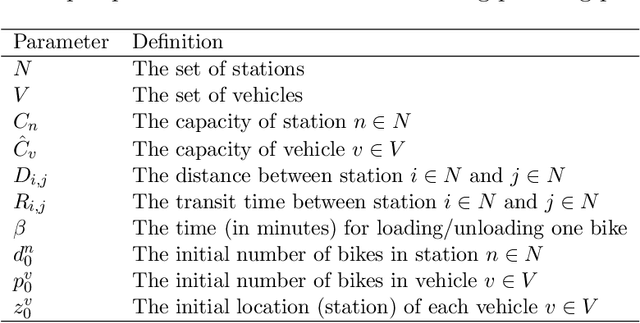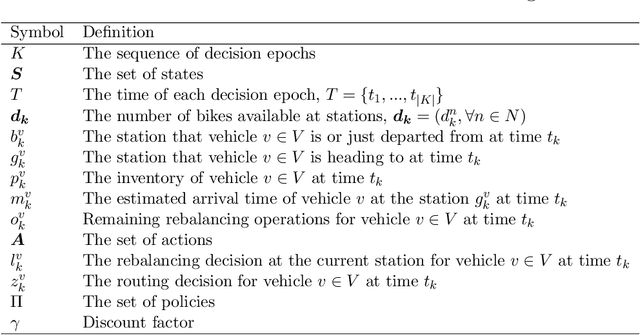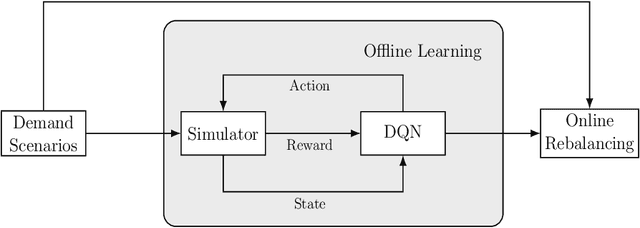A Reinforcement Learning Approach for Dynamic Rebalancing in Bike-Sharing System
Paper and Code
Feb 05, 2024



Bike-Sharing Systems provide eco-friendly urban mobility, contributing to the alleviation of traffic congestion and to healthier lifestyles. Efficiently operating such systems and maintaining high customer satisfaction is challenging due to the stochastic nature of trip demand, leading to full or empty stations. Devising effective rebalancing strategies using vehicles to redistribute bikes among stations is therefore of uttermost importance for operators. As a promising alternative to classical mathematical optimization, reinforcement learning is gaining ground to solve sequential decision-making problems. This paper introduces a spatio-temporal reinforcement learning algorithm for the dynamic rebalancing problem with multiple vehicles. We first formulate the problem as a Multi-agent Markov Decision Process in a continuous time framework. This allows for independent and cooperative vehicle rebalancing, eliminating the impractical restriction of time-discretized models where vehicle departures are synchronized. A comprehensive simulator under the first-arrive-first-serve rule is then developed to facilitate the learning process by computing immediate rewards under diverse demand scenarios. To estimate the value function and learn the rebalancing policy, various Deep Q-Network configurations are tested, minimizing the lost demand. Experiments are carried out on various datasets generated from historical data, affected by both temporal and weather factors. The proposed algorithms outperform benchmarks, including a multi-period Mixed-Integer Programming model, in terms of lost demand. Once trained, it yields immediate decisions, making it suitable for real-time applications. Our work offers practical insights for operators and enriches the integration of reinforcement learning into dynamic rebalancing problems, paving the way for more intelligent and robust urban mobility solutions.
 Add to Chrome
Add to Chrome Add to Firefox
Add to Firefox Add to Edge
Add to Edge